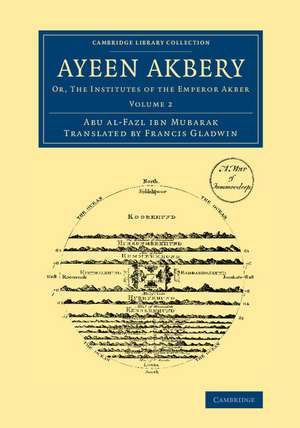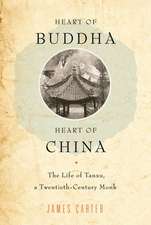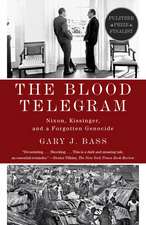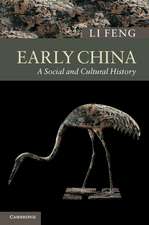Ayeen Akbery: Volume 2: Or, The Institutes of the Emperor Akber: Cambridge Library Collection - South Asian History
Autor Abu'l-Fazl ibn Mubarak Traducere de Francis Gladwinen Limba Engleză Paperback – 2014
Din seria Cambridge Library Collection - South Asian History
- 19%
 Preț: 657.70 lei
Preț: 657.70 lei -
 Preț: 365.16 lei
Preț: 365.16 lei - 23%
 Preț: 1213.80 lei
Preț: 1213.80 lei - 23%
 Preț: 833.69 lei
Preț: 833.69 lei -
 Preț: 361.59 lei
Preț: 361.59 lei -
 Preț: 466.53 lei
Preț: 466.53 lei -
 Preț: 282.85 lei
Preț: 282.85 lei -
 Preț: 429.29 lei
Preț: 429.29 lei -
 Preț: 421.42 lei
Preț: 421.42 lei -
 Preț: 466.75 lei
Preț: 466.75 lei -
 Preț: 407.01 lei
Preț: 407.01 lei -
 Preț: 518.89 lei
Preț: 518.89 lei -
 Preț: 374.08 lei
Preț: 374.08 lei -
 Preț: 467.71 lei
Preț: 467.71 lei -
 Preț: 498.41 lei
Preț: 498.41 lei - 19%
 Preț: 478.25 lei
Preț: 478.25 lei - 19%
 Preț: 455.62 lei
Preț: 455.62 lei -
 Preț: 367.33 lei
Preț: 367.33 lei -
 Preț: 251.55 lei
Preț: 251.55 lei -
 Preț: 522.55 lei
Preț: 522.55 lei - 19%
 Preț: 469.32 lei
Preț: 469.32 lei -
 Preț: 246.93 lei
Preț: 246.93 lei - 19%
 Preț: 627.95 lei
Preț: 627.95 lei -
 Preț: 241.27 lei
Preț: 241.27 lei -
 Preț: 287.95 lei
Preț: 287.95 lei -
 Preț: 519.66 lei
Preț: 519.66 lei -
 Preț: 444.95 lei
Preț: 444.95 lei -
 Preț: 472.37 lei
Preț: 472.37 lei -
 Preț: 422.77 lei
Preț: 422.77 lei -
 Preț: 278.99 lei
Preț: 278.99 lei -
 Preț: 522.55 lei
Preț: 522.55 lei -
 Preț: 356.96 lei
Preț: 356.96 lei -
 Preț: 408.91 lei
Preț: 408.91 lei -
 Preț: 248.46 lei
Preț: 248.46 lei -
 Preț: 238.00 lei
Preț: 238.00 lei
Preț: 498.72 lei
Preț vechi: 615.70 lei
-19% Nou
Puncte Express: 748
Preț estimativ în valută:
95.43€ • 99.97$ • 79.09£
95.43€ • 99.97$ • 79.09£
Carte tipărită la comandă
Livrare economică 09-23 aprilie
Preluare comenzi: 021 569.72.76
Specificații
ISBN-13: 9781108067102
ISBN-10: 1108067107
Pagini: 590
Dimensiuni: 178 x 254 x 30 mm
Greutate: 1.01 kg
Editura: Cambridge University Press
Colecția Cambridge University Press
Seria Cambridge Library Collection - South Asian History
Locul publicării:Cambridge, United Kingdom
ISBN-10: 1108067107
Pagini: 590
Dimensiuni: 178 x 254 x 30 mm
Greutate: 1.01 kg
Editura: Cambridge University Press
Colecția Cambridge University Press
Seria Cambridge Library Collection - South Asian History
Locul publicării:Cambridge, United Kingdom
Cuprins
Introduction; Bengal; Bahar; Allahabad; Owdh; Agra; Malwah; Dandees; Berar; Gujerat; Ajmeer; Dehly; Lahoor; Multan; Tatah; Chasmeer, including Cabul; Of the Crouh, or Cose; Tukseem Jumma; Abulfazels' introduction on religious toleration; A description of Hindostan; Opinions concerning the creation; Astronomy; Of the deeps, or islands; Other divisions of the universe; General description of the earth; Of the earth's longitude; Of the earth's latitude; Tables of longitudes and latitudes; The extent of the inhabited earth; Numeration; The jehats, or quarters; Of the Hindoos; Of the languages of Hindostan; The birds and beasts of Hindostan; Weights and measures; The learning of the Hindoos; The science; The doctrine of Boodh; Nastick; The eighteen Beddya, or arts and sciences; The art of discovering crimes; The art of predicting future events; The names of some other arts; The art of writing with elegance; Music and dancing; The art of governing a kingdom; The administration of justice; The four Hindoo degrees of discipline; The worship of the deity; The incarnations of the deity; Unclean things; Purifications; Improper dress; Forbidden food; The ceremonies to be observed before meals; Fasts; Sins; Places dedicated to divine worship; Marriages; Dress; Jewels; Workmen; Ceremonies on the birth of a child; Festivals; Ceremonies with the dead; Meritorious kinds of suicide; Explanation of some Sanscrit words; List of subscribers.
Descriere
Published in 1800, the two-volume English translation of a sixteenth-century Persian document on the workings of the Mughal Empire.














